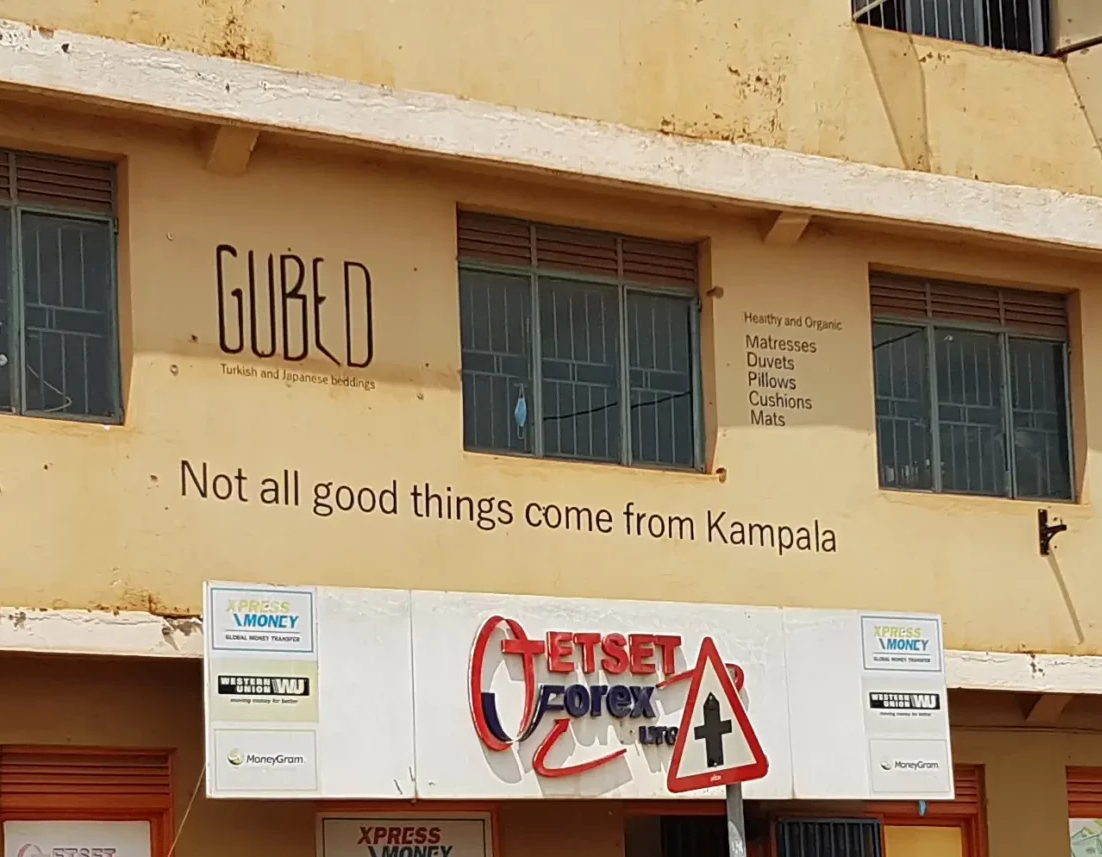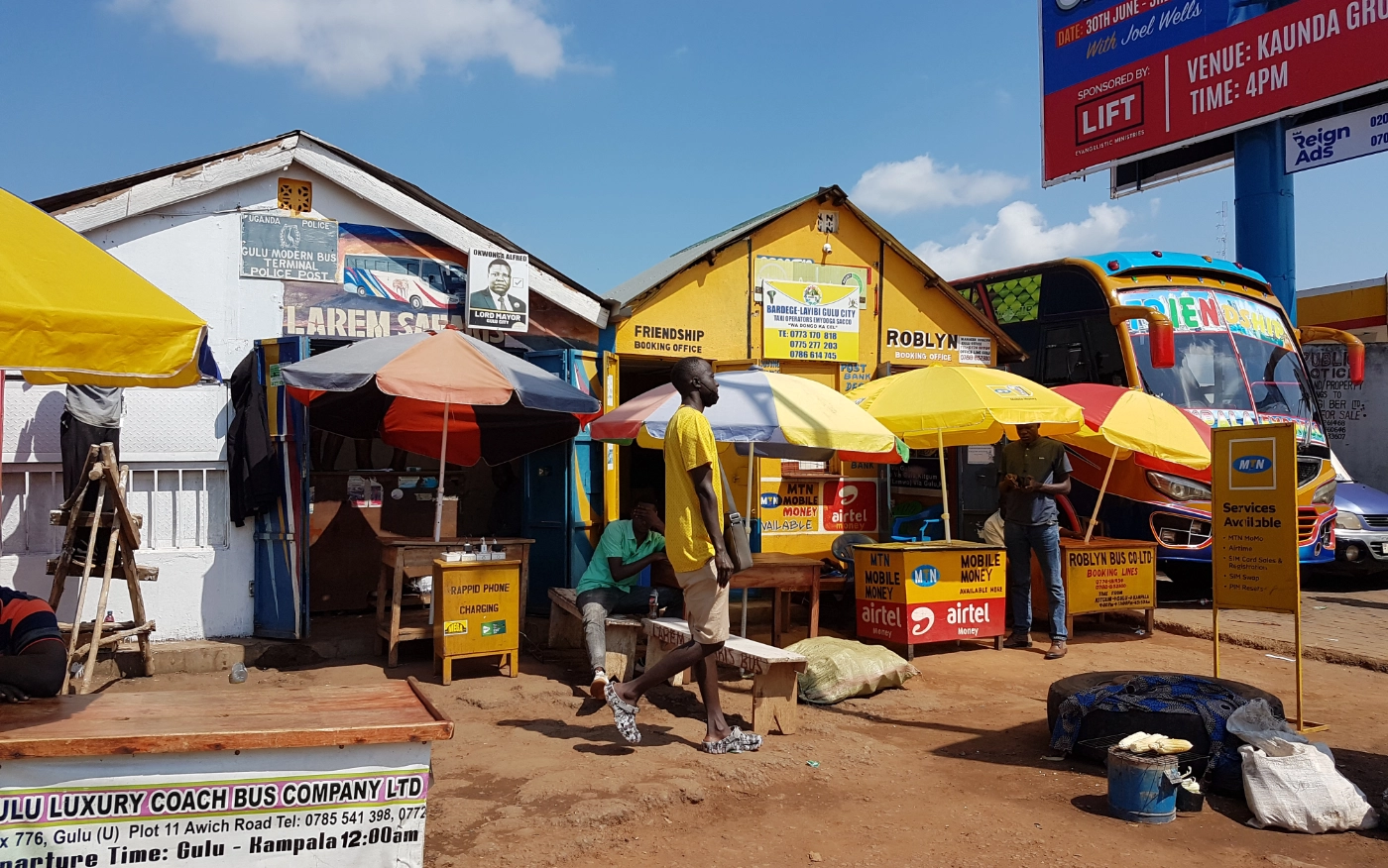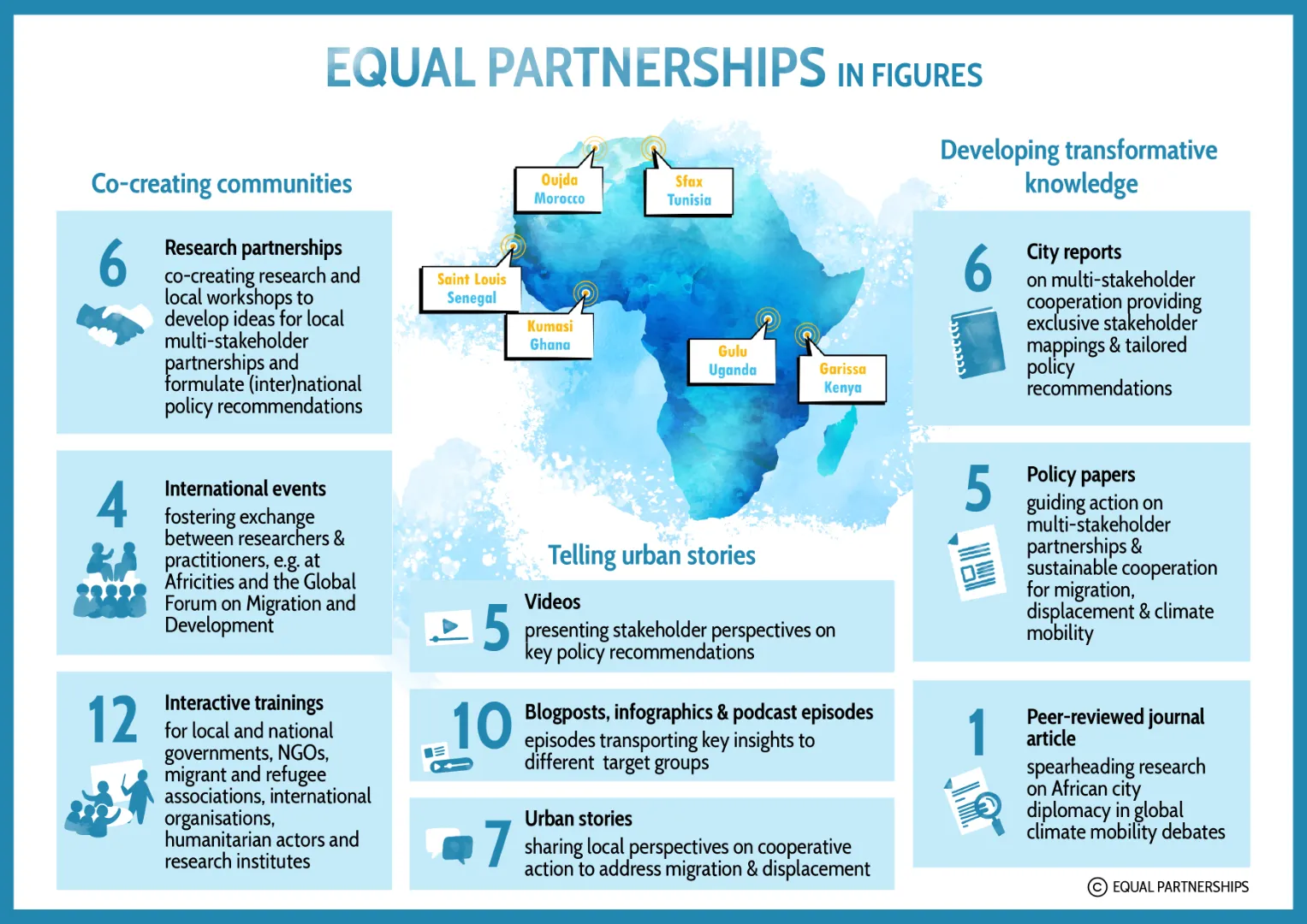About
The Equal Partnership project explores the opportunities and challenges of collaborative, urban migration governance in African intermediary cities
Phase 1
Africities Summit
- International workshop “Multi-stakeholder Partnerships for Urban Migration Goverance“

Phase 2
Research Partnerships
- Six research partnerships with intermediary cities in East, North and West Africa
- Six local workshops „Next steps for multi-stakeholder cooperation“
Phase 3
Advocacy Partnerships
- Policy papers, blog posts, videos, case studies
- Cooperation with city networks and IOs to bring findings into GFMD, GRF and other regional & international fora

Multi-stakeholder partnerships are key for African intermediary cities
Africa is witnessing an ongoing transformation from rural to increasingly plural urban societies. While this transformation has been well-documented, the focus of scholarship and practice has been predominantly on human mobility towards and into major urban areas and capital cities. In contrast, intermediary cities, the in-between the rural and the metropolitan, have been largely absent in academic and policy debates. The Equal Partnership works with African intermediary cities to explore collaborative, urban migration governance. The project is jointly developed by the Friedrich-Alexander-University Erlangen-Nürnberg, the city network United Cities and Local Governments of Africa (UCLG Africa), the German Institute of Development and Sustainability (IDOS), and the social enterprise Samuel Hall. Supported by the Robert Bosch Stiftung, we work in cooperation with six intermediary cities in East, North, and West Africa. Through participatory research, workshop, and networking formats, we bring together local, national, and international actors to develop practical impulses and policy recommendations to co-shape multi-stakeholder partnerships for urban migration governance in African intermediary cities.
Project objectives
As an impact-driven research project, we want to answer questions that matter to local and national governments, migrant and refugee associations, NGOs, private sector actors and international organizations working in urban settings. We therefore consider participatory knowledge creation as the basis for cooperative action. Our main objectives reflect this idea:
- Building an evidence base on collaborative urban action addressing human mobility (migrants, refugees, displaced persons) in contexts of conflicts, climate change, economic challenges, family reunification or education abroad
- Creating incubation spaces for local, national and international actors to co-shape outcome-oriented ideas for
- inclusive approaches to mixed migration in intermediary cities
- municipal capacity building and institutional learning
- cross-sectoral multi-stakeholder partnerships

Project achievements
Equal Partnerships inspired multi-stakeholder partnerships to strengthen urban migration governance and connect resources and knowledge systems more effectively across sectors and levels of governance. Since 2021, we have developed six research partnerships with the intermediary cities of Garissa in Kenya, Gulu in Uganda, Kumasi in Ghana, Oujda in Morocco, Saint-Louis in Senegal and Sfax in Tunisia. Engaging with over 120 local, national and international stakeholders we have developed urban systems mappings, conducted qualitative interviews and facilitated impact-oriented workshops to co-create (1) city-specific and actionable partnership concepts as well as (2) policy recommendations addressed to national and international change makers, donors, and philanthropy. To share these partnership concepts and policy recommendations with a wide range of actors, Equal Partnerships developed city reports, policy papers, academic articles, videos, blog posts, podcast episodes and infographics tailored to diverse actors. Drawing on these resources, we have connected urban stakeholders with funding partners to implement partnership ideas, shared policy recommendations at international events and facilitated interactive trainings for frontline change-makers and co-creation researchers.
